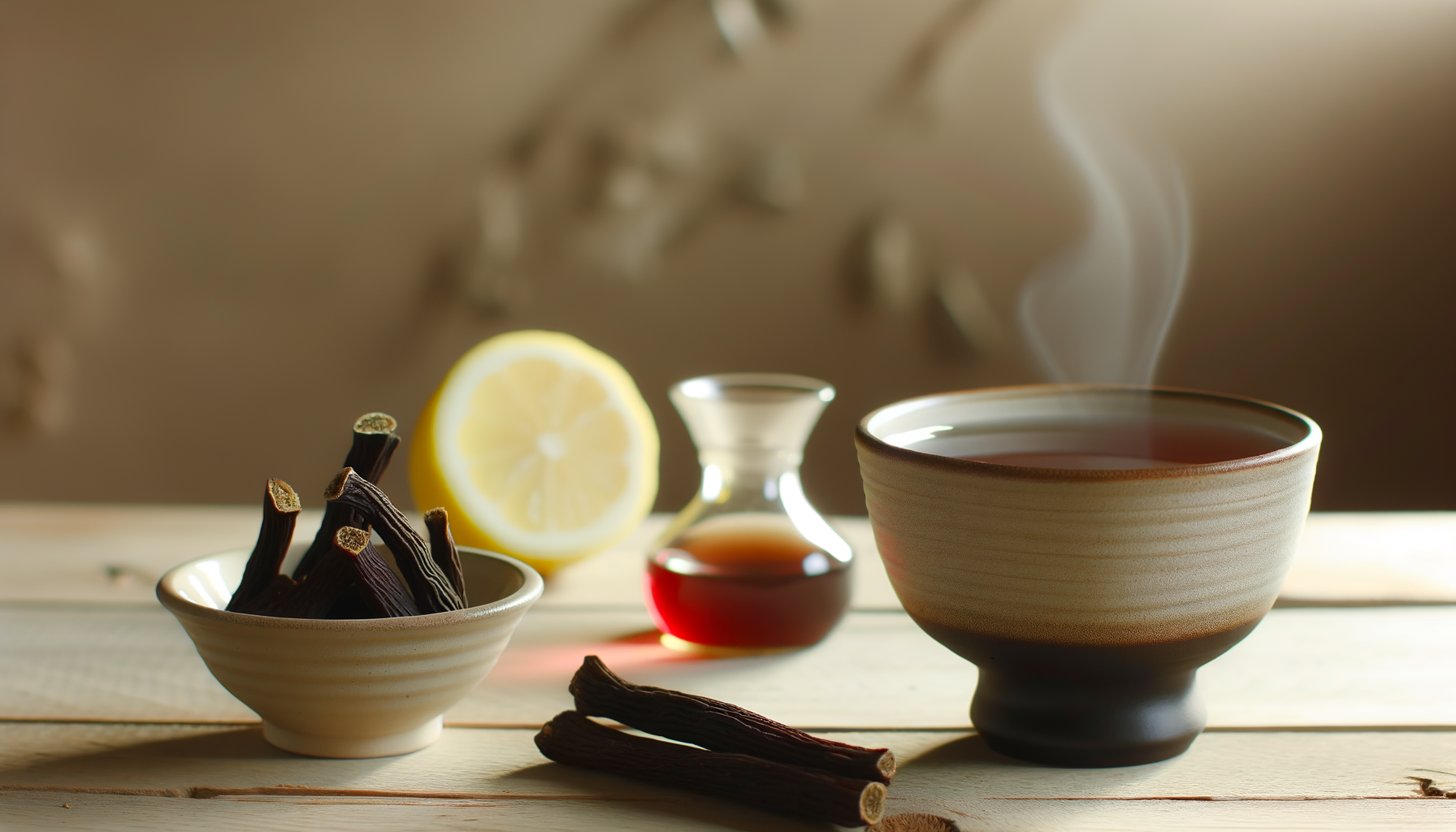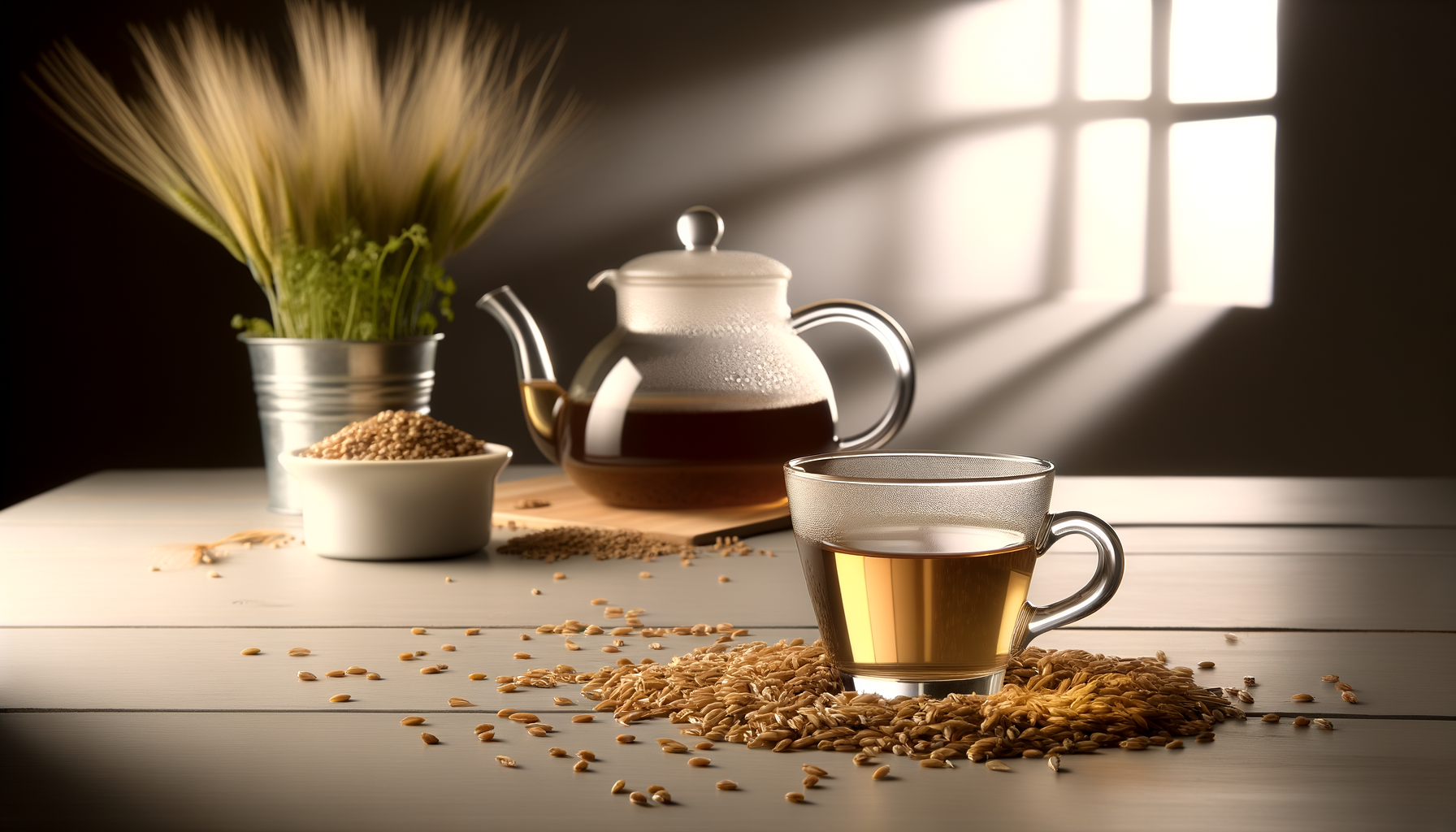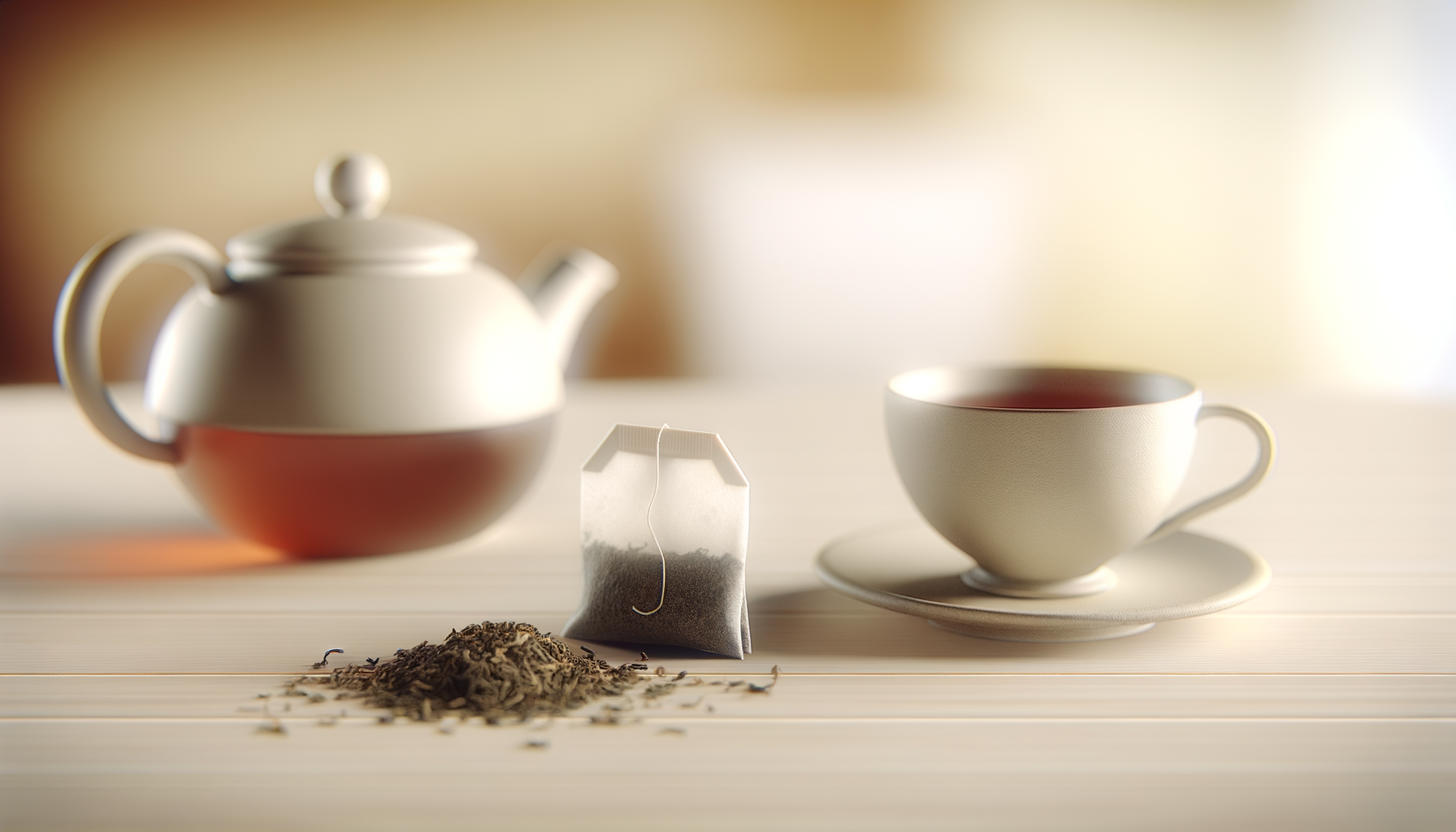
Licorice Tea Health Benefits: Sip Your Way to Wellness in 2024
Ever wondered if your favorite sweet treat could actually be good for you? Enter licorice tea, a delightful brew that's been soothing souls for centuries. This isn't just any ordinary cup of tea; it's a powerhouse of potential health benefits wrapped in a comforting, naturally sweet package. As we dive into the world of licorice tea, prepare to be surprised by how this ancient remedy might just be the wellness boost you've been searching for. Ready to explore the hidden perks in your teacup?
What is Licorice Tea?
Let's dive into the world of licorice tea, shall we? This delightful brew has been around for centuries, originating from the roots of the Glycyrrhiza glabra plant. You might be surprised to learn that it's not actually related to the candy licorice we're familiar with!
Licorice tea is packed with unique compounds, including glycyrrhizin, which gives it that distinctive sweet taste. This natural sweetener is actually 50 times sweeter than sugar! But there's more to licorice tea than just its flavor.
In various cultures, licorice root has been used for its medicinal properties. From ancient Egypt to traditional Chinese medicine, this powerful plant has been valued for its potential health benefits. Now, let's explore what makes licorice tea so special.
The Sweet Science: Nutritional Profile of Licorice Tea
When you sip on a cup of licorice tea, you're treating your body to a wealth of nutrients. This herbal infusion contains vitamins and minerals like calcium, magnesium, and potassium. But what really sets it apart are the unique compounds found in licorice root.
Glycyrrhizin, as we mentioned earlier, is the star player here. It's joined by flavonoids and various plant compounds that contribute to licorice tea's potential health benefits. Compared to other herbal teas, licorice stands out for its natural sweetness and distinct flavor profile.
But how does it stack up nutritionally? While it's not a significant source of calories or macronutrients, licorice tea shines in its phytochemical content. These plant-based compounds are what give licorice tea its reputation as a functional beverage.
Digestive Support: A Soothing Brew for Your Gut
Are you dealing with tummy troubles? Licorice tea might be just what you need. It has a unique impact on stomach acid, potentially helping to soothe and protect the lining of your digestive tract.
Many people turn to licorice tea for relief from indigestion and heartburn. Its natural compounds may help create a protective coating in the stomach, easing discomfort and promoting better digestion.
But that's not all – licorice tea might also support a healthy gut microbiome. By promoting the growth of beneficial bacteria, it could contribute to overall digestive health. Isn't it amazing how a simple cup of tea can do so much for your gut?
Respiratory Health: Breathe Easy with Licorice Tea
When you're feeling under the weather, reaching for a cup of licorice tea might be a good idea. Its anti-inflammatory properties could provide some relief for your respiratory system.
Have a sore throat or a nagging cough? Licorice tea's soothing effects might help ease these symptoms. Many people find that sipping on this warm, sweet brew provides comfort during cold and flu season.
Furthermore, some studies suggest that licorice root may support overall lung function. While more research is needed, it's an intriguing potential benefit that adds to the appeal of this versatile herbal tea.
Stress Relief and Adrenal Support
In today's fast-paced world, who couldn't use a little stress relief? Licorice tea might be able to help, thanks to its adaptogenic properties. But what does that mean for you?
Adaptogens are substances that may help your body cope with stress more effectively. Licorice root has been shown to impact cortisol levels – your body's primary stress hormone. By potentially modulating your stress response, licorice tea could contribute to better emotional well-being.
Imagine coming home after a long day and unwinding with a cup of licorice tea. It's not just the act of sipping a warm beverage that's calming – the tea itself might be working to support your body's stress management systems.
Skin Health: Glow from the Inside Out
Did you know that what you drink can affect your skin? Licorice tea's antioxidant properties might help protect your skin from damage caused by free radicals and environmental stressors.
Some people have found licorice tea beneficial for various skin conditions. While it's not a replacement for medical treatment, the anti-inflammatory properties of licorice root could potentially support skin health.
There's even some evidence suggesting that licorice extract might support collagen production. Collagen is crucial for maintaining skin elasticity and a youthful appearance. While drinking licorice tea isn't a magic solution for perfect skin, it could be a delicious addition to your skincare routine.
Precautions and Potential Side Effects
As wonderful as licorice tea can be, it's important to enjoy it in moderation. The recommended daily intake is typically no more than 1-2 cups per day for most adults.
If you're taking any medications, it's crucial to check with your healthcare provider before adding licorice tea to your routine. It can interact with certain drugs, including blood thinners and some heart medications.
Some people should avoid licorice tea altogether. This includes individuals with high blood pressure, liver or kidney disease, and pregnant women. Always prioritize your health and consult with a medical professional if you have any concerns.
How to Brew the Perfect Cup of Licorice Tea
Ready to enjoy a cup of licorice tea? Here's how to brew it to perfection:
- Start with fresh, cold water and bring it to just below boiling (about 200°F).
- Place 1 teaspoon of dried licorice root or 1 licorice tea bag in your cup.
- Pour the hot water over the licorice and let it steep for 5-10 minutes.
- Strain or remove the tea bag, and your licorice tea is ready to enjoy!
For the best flavor, avoid oversteeping, as it can make the tea bitter. If you find the taste too strong, try adding a slice of lemon or a touch of honey to balance it out.
Want to get creative? Licorice tea pairs well with other herbs like peppermint or chamomile. Don't be afraid to experiment and find your perfect blend!
Conclusion
As we've steeped ourselves in the world of licorice tea health benefits, it's clear that this sweet and soothing brew offers more than just a pleasant taste. From supporting digestion to potentially boosting respiratory health, licorice tea stands out as a versatile addition to your wellness routine. Remember, while the benefits are enticing, it's always wise to enjoy in moderation and consult with a healthcare professional if you have any concerns. Why not brew yourself a cup today and start sipping your way to better health? Your taste buds—and your body—might just thank you for it!


